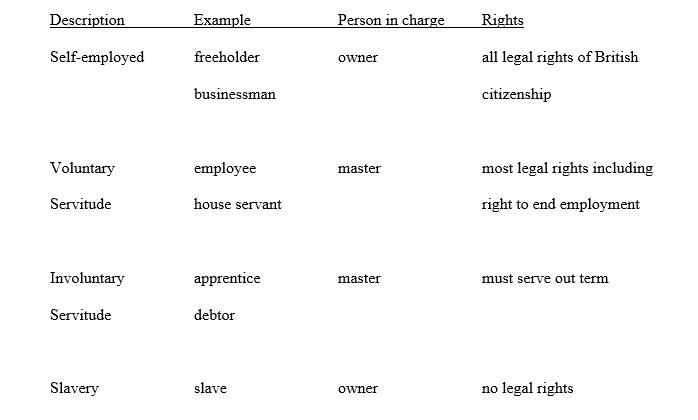
During the Civil War, Confederates cried defensively, “Plantation slavery isn’t our fault. We inherited it from the British!”
So, what did Britain contribute to slavery in the United States?
One thing was its system of labor. All land discovered, explored, and claimed in the name of the British monarch belonged to the reigning king or queen. Favored gentlemen were granted royal charters to develop great swaths of land. This was usually in agriculture or mining precious metals or gemstones.
Within the forts and towns that grew on charter land, there were four levels of labor distribution apart from the military.

The first colony, Jamestown, began in 1607. The first black slaves arrived in 1619 and would be used especially in the developing tobacco plantations.
All of the colonies had slaves although the occupations of slaves differed. In southern and middle Atlantic colonies, enormous numbers of slaves were needed for the vast plantations. In New England, plantations were rarely economical because of the poor soil and rougher terrain.
However all colonies used slaves for small farms, household help, personal servants, and skilled labor. In New England, these included indigenous slaves.
The New England states of Massachusetts and Rhode Island were in the business of acquiring and selling African slaves through shipbuilding and slave ship charters.
So, yes, the labor system that included slavery was inherited from the British.